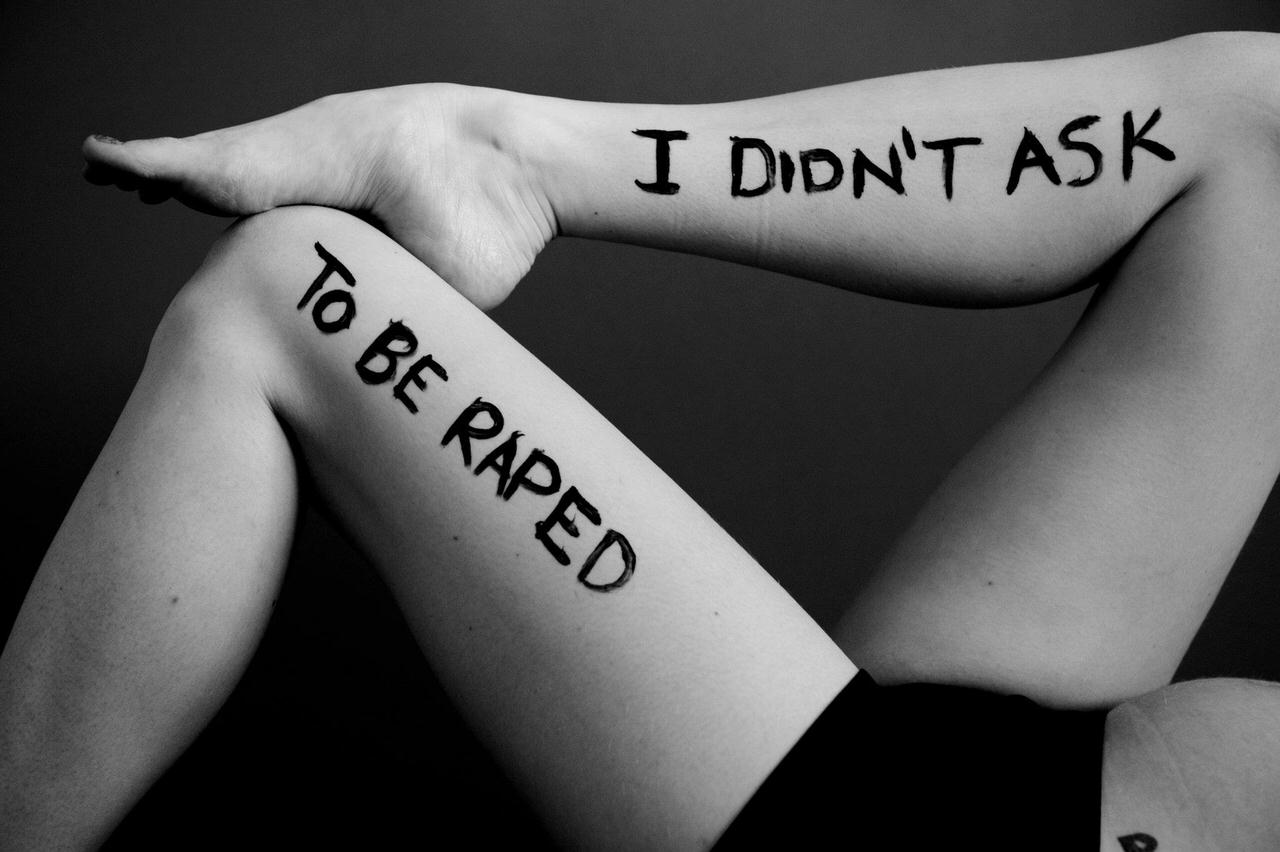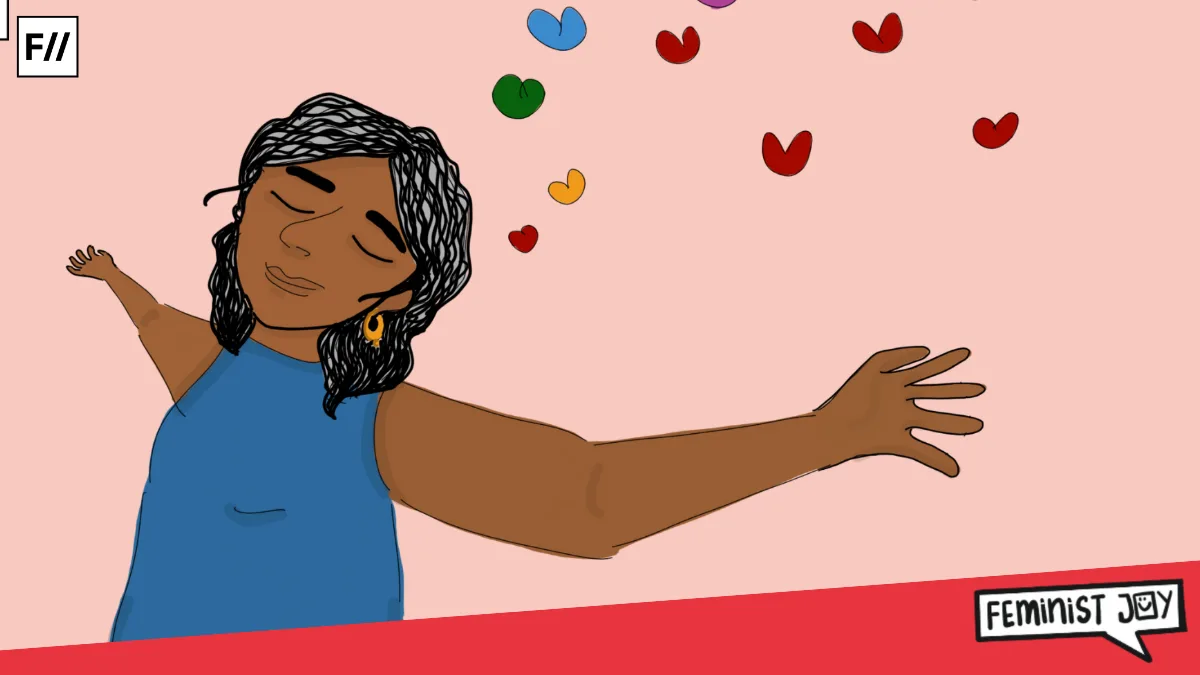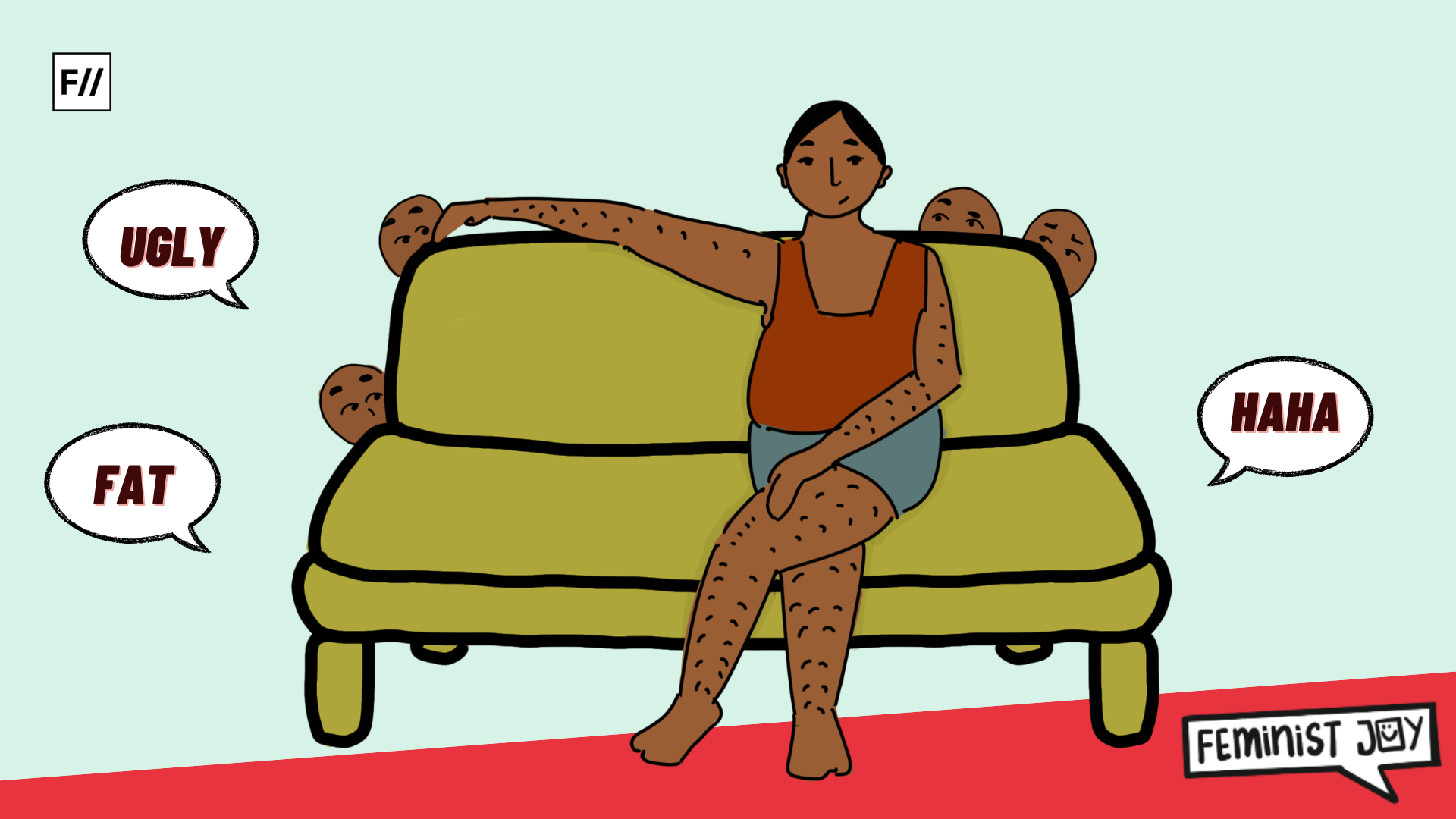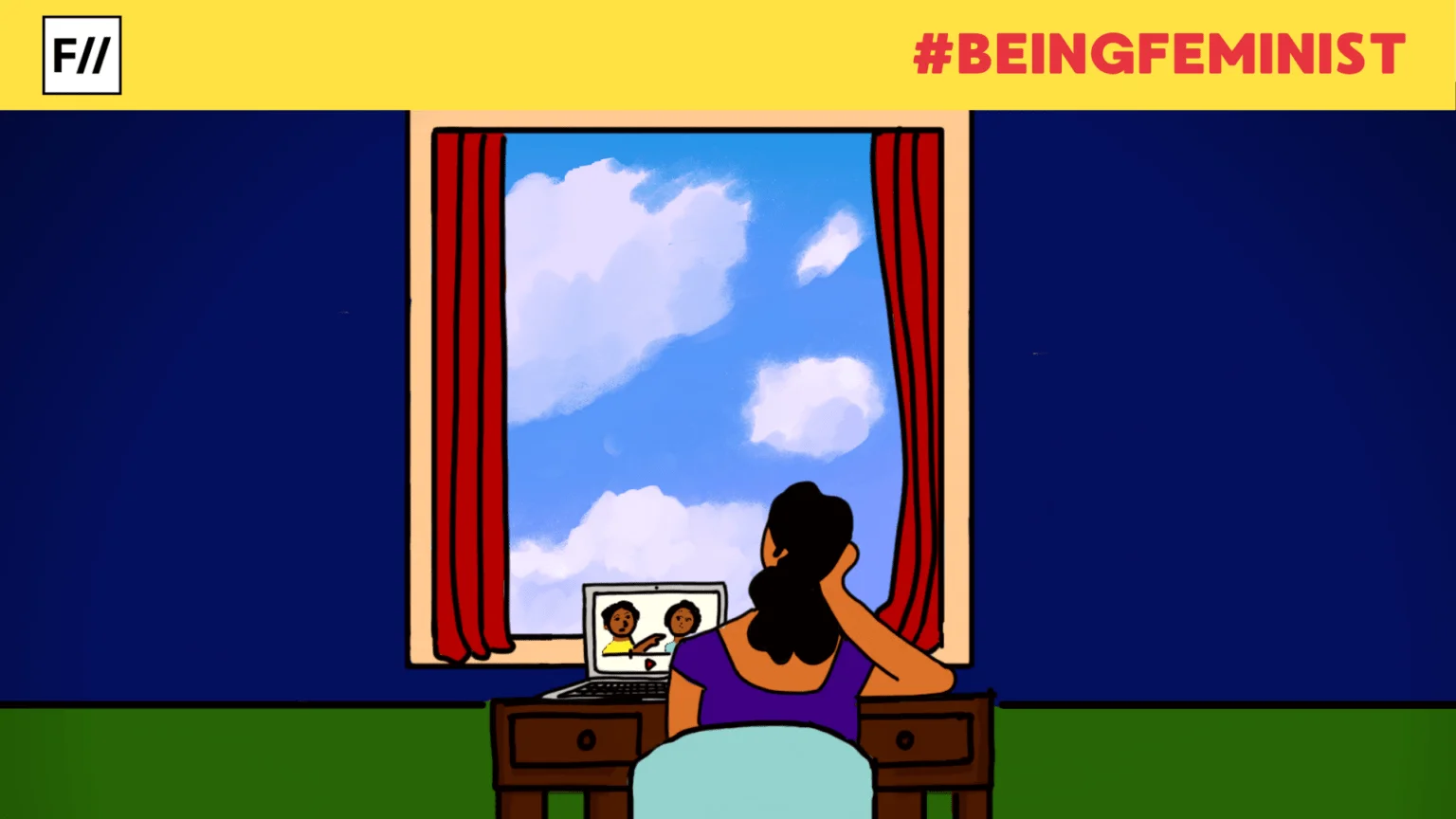Editor’s Note: The story below is not narrated from the survivor’s point of view because of her inability and unwillingness to write about it, since no words seemed enough for her to express her feelings. The author is the survivor’s boyfriend and has been with her during the post-rape ordeal, which continues even till today. However, the text has been read and edited by her and is published here with her consent. The author admits that her text would surely be different from what he has written, but she doesn’t seem ready to write it just yet. He has used her words while describing her thoughts (for example, when he wrote that the thick fog surrounding the hill seemed to mirror her thoughts, it is not literary licence but the very same words she used to describe the scene in a message she wrote him.)
That rape always consists in the brutal assault of a young innocent virgin by a strong heavily-armed psychopath is a widespread myth. This myth is not only false, but harmful. The very large majority of rapes are indeed perpetrated by someone with whom the victim has already got acquainted, and don’t occur in a dark alley as we could expect. Rapes are not as exceptional as this myth implies. Actually, this misconception often prevents us from identifying a situation as a rape and from helping the victim accordingly. It leaves us all unprepared when confronted to rape.
The story
That night, my girlfriend E went to a nightclub in Bangalore with some of her friends, mostly foreigners as herself. It was a fun evening; dancing, laughing, being exhilarated by the music and the atmosphere, talking to new people. There was this guy, F. He pretended to be a model from Turkey, something that later turned out to be false. He was very flirtatious, but nice. E made it clear from the beginning that she was committed in a relationship and not interested in anything else but friendship. He seemed to accept it, and E couldn’t imagine that he wouldn’t respect her and her desires.
E and her friends had planned to go to Nandi Hills to see the sunrise at the end of the night. F and his friends asked to join them and suggested to go to another bar before sunrise. E and one of her friends got in a taxi with F while her two other friends were in a different car with F’s friends. After a long ride, the cars stopped in front of a house instead of a bar. E could barely stand from the alcohol, and wasn’t fully aware of what was happening. In the taxi, F had already held her down to kiss her by force. He had been trying to get close to her and to kiss her during the whole ride. She had been pushing him away and telling him to stop, but he was stronger than her and the alcohol had made her weak. While entering the apartment, E asked her friends not to leave her alone with him. But they didn’t react when F dragged her inside a bedroom pretending it was “just to talk”, and discreetly locked the door behind him.
Nobody noticed that something was really amiss when E got out of the room. She was in deep shock and couldn’t phrase any word about what had just happened. She accompanied the rest of the group to Nandi Hills, as initially planned. The sunrise was long past and the thick fog surrounding the hill seemed to mirror her thoughts. She felt as if she were floating around her body, her head missing and her feelings lost somewhere unknown. Still, she was smiling on the pictures. As a reassuring idea that she was still there with her friends, and that it may just have been a bad dream.
Her composure collapsed when she came back home, and she burst into tears. She was feeling horrible and puckish, with a bad headache. The memories of the night were vivid and painful. She had been raped.
Denial
Our society paradoxically considers rape as a horrible crime but often labels it as “normal” when it happens for real. When they are told about rape, most people minimize the story and say that it doesn’t count, that it was not really rape. Many arguments can apparently account for that, such as: the rapist was not armed, so the girl must have let him do it; she provoked him because she was not dressed properly; she hooked on him at a party or even accepted a kiss from him, so she “wanted” it; they were dating each other or even married, so it’s not really a rape; she didn’t or wasn’t able to clearly say “no” so she was consenting; she was drunk, so it’s her fault. There is always a reason for a real rape not to be counted as rape. All of these excuses only show that by preventing women to be as free as they would like to be, rapes are part of the normal functioning of our society.
When E told her friends about what had just happened, one of them answered that it was “normal” when people get drunk. But no, it’s not! It is not because the night was enshrouded in a cloud of glitter, laughs and alcohol that it is not rape. It is not because E had been enthusiastically dancing in the nightclub that it was not rape. It is not because she may have been inconsequentially flirting that it was not rape. Sex without consent is always rape.
Another friend of hers told her that is was her fault, that anyone could have stopped it. As if putting the blame on the victim could help her in any way! E spent two days prostrated inside, crying a lot and remembering every detail. Her first reflex had already been to put the blame on herself: she shouldn’t have gotten drunk, she shouldn’t have talked to this guy, she should have avoided him earlier, she had been too naive and stupid, too trustful when she imagined that her desires would be respected, she should have been rude or aggressive before it was too late, etc. But who is at fault there? Rape is not the victim’s fault, it is the deliberate action of a criminal. Blaming the victim is an easy way to feel safe: by believing that E was responsible for the rape, her friend felt more confident that she wouldn’t put herself in a similar situation. But although reassuring, this thought is a lie: a rape can happen to anyone, and in the most unexpected circumstances. In the case of E’s friends, minimizing the event and putting the blame on her was probably also a way to avoid their own responsibility and their own guilt: they were there, and they didn’t do anything, even though E had explicitly asked them not to leave her alone with F.
Reporting the rape
Rape is not just a bad experience, it is a criminal offence. No rape should go unreported: as long as rapes are not reported and not fairly dealt with by the authorities, rapists will have a sense of impunity. Sadly, the vast majority of rapes are not reported; partly because they often imply family, friends and acquaintances, because society conspires to put the blame on the victim and to make her feel guilty, or because the victim was taught to be ashamed of such an event. But it’s the rapist who should be ashamed, not the victim! For the victim, rape has barely anything to do with sex. It’s just gross violence and a disgusting violation of her body, of her will, and of her intimacy. Rape is not about sex, but about controlling someone else and denying her most basic human rights.
I suggested E to report the rape to the police and came to Bangalore as early as possible to help her do so and to support her. Reporting the rape was a painful process in itself. We spent four full days at the police station and at the hospital together, and E went there two times more afterwards. It took most of her remaining time in India. Beyond narrating the events again and again and going through various medical check-ups, E had to confront with her memories: going back to the apartment was particularly painful, as it crudely reminded her of some of the appalling details of the rape. She was walking in circles, staring at her feet and feeling awful and puckish. She wanted to get out of this nauseating place. When she confronted the rapist the next day, it left her disgusted and feverish. She vomited when she came back to her room in the evening and didn’t sleep well. Nevertheless, having reported the rape will surely make her stronger to cope with its insidious consequences on her self-image and the irrational feeling of insecurity it triggered. Ultimately, having been able to face without veil what happened will hopefully help her get over the trauma and move on.
Reporting the rape to the police implied E being entirely confident about her experience and having stopped blaming herself. In front of her determination, her friends had to realize that what had happened was indeed a rape, and they stopped being in denial. Reporting the rape thus also changed their attitude and they became more supportive. Through the police, the whole society had to give some credit to her testimony. Many of E’s friends and family members now know what she has gone through, and being able to tell the story without shame is probably a great step towards recovery. The care and understanding that she got at the police station surely helped her a lot. The police was indeed exemplary, which was a much welcomed relief.
Minimizing the rape
When they learnt that E was going to report the rape to the police, F’s male acquaintances who were also in the apartment when it happened tried to dissuade her to do so, or at least to leave them out of the complaint. One of them was notably fearing for his reputation as a businessman and even threatened E if she were to mention him. Instead of being concerned by what had happened to her and to support her, he was selfishly focussed on getting his name out of the case. Instead of proposing to testify as a witness, he was cowardly trying to escape the investigation.
But the attitude of F’s acquaintances was not just about being selfish and cowardly. It highlighted their deeper acceptance of rape, as if rape was not such a grave offence. They actually didn’t deny the event, but were minimizing it, as if rapes were “normal” and didn’t deserve to be reported. They sincerely didn’t seem to understand F’s wrongdoing. When summoned to the police station, they continued to try to convince E to drop the case. When F’s brother arrived, it was his turn to do so. He even inconsistently tried to move E to pity his family’s poverty while offering her money to drop the case. They all pretended to understand her pain but seemed to think that F didn’t deserve to be punished by law. Why would she ruin one year of F’s life just for rape? While F would stay in custody for a while, she would go back to her country and soon forget about it, isn’t it? He’s young and he didn’t know what he was doing, so why punish him so harshly? They promised that if she were to drop the case, he would change and that he would become a better man within six months. For them, it was a forgivable mistake, not a criminal offence. And by doing so, they were denying the entire lifelong trauma that rape represents for the victim. At times, it even seemed that it was F who was the victim for them. The victim of E’s determination to obtain justice.
Confronting the rapist
F had contacted E in the days that followed the rape. He had acknowledged that he knew she was drunk, but had pretended to be madly in love with her and to be willing to see her again. When confronted to her pain and to her precise questions, he had first denied any sexual intercourse and had then rapidly hung up. He probably assumed that she would suffer her pain in silence and wouldn’t bother him again. Maybe that’s what he expected from the other girls he had known. He deactivated his phone and disappeared when he got to know that E was going to file a complaint against him, but he still had to come back to Bangalore and to present himself to the police a few days later. The police had been very efficient at tracking him.
When he saw me at the police station, the only words he uttered to me were: “I’m sorry, but she liked me”. He seemed to assume that I was just a pissed-off, jealous boyfriend, and that this was the only problem. I was taken aback by his confidence; confidence in his power of seduction and in the fact that the sexual intercourse had been consensual. But there is such a discrepancy between his self-praising version of the event and the utter disgust it inspires E! She was totally drunk and dizzy, but he believes she was consenting. He may have been convinced that any girl would fall for his charms, but when he started to get pushier, she stopped him and clearly told him that she didn’t want anything to happen between them. Still, he believes she was consenting. She had fallen asleep when he went on top of her and started to grope her body, but he believes she was consenting. She kept avoiding his kisses and kept trying to get him off her, but he believes she was consenting. She had tears in her eyes, but he believes she was consenting. She kept saying “no”, kept cursing him, and he had to shut her up by force, but he believes she was consenting. He had to hold her hands by force above her head during most of the intercourse, but he believes she was consenting. She was choking from his deeds, but he believes she was consenting. She ended up with a broken nail and bruises on her thighs, but he believes she was consenting. She started hitting him as soon as he released his hold, but he still believes she was consenting.
He probably thinks that it wasn’t rape because he was constantly begging her to let him do what he was anyway going to do or because he did wipe her tears and apologized at some point, before continuing. But meaninglessly begging and apologizing can’t be an excuse to be deaf when the other says “no” or tries to get away. He precisely had to beg because she didn’t want it. It’s not because he was pathetically saying “please” that he wasn’t grossly raping a girl. F actually seems to belong to the most common type of rapists, those who believe that they are on a date and that the victim is enjoying it. As in the case of F, such rapists don’t use excessive force and often attempt foreplay, they try to reassure the victim with words and are expected to re-contact their victim afterwards.
F probably thinks that it wasn’t a rape because he is a normal guy, a nice guy even, not a psychopath. And yes, he’s definitively not a psychopath. But he is a rapist. This might be the most destabilizing thing about rapes: most of them are not perpetrated by psychopaths. They are perpetrated by “normal” guys. And in the case of F, his rape was nevertheless deliberate: he hadn’t drunk (he doesn’t drink for religious reasons), his mind was clear, and he was perfectly aware of what he was doing. He discreetly locked the door behind him, waited for E to doze off from the alcohol, and had condoms at hand.
Epilogue
Rape is not just a delimited event in the victim’s past. The trauma insidiously penetrates the deeper layers of her personality and of her fears. It instils a long-lasting feeling of insecurity. A few days after the rape, E started to have recurring nightmares and to imagine that somebody was waiting in her room to rape her again. She has to keep the lights on at night, and sometimes wakes up in fright. She can’t sleep if she doesn’t feel perfectly safe. The vivid disturbing flashes and any detail that reminds her of the rape make her freeze, as if she couldn’t move. It makes her feel chocking and puckish. A year after the rape, the memories are still as painful and overwhelming, and the event seems to have altered even her personality. She can’t be as trustful and cheerful as before, and her moods often swing. She sometimes has to avoid the company of others. She feels a part of her died that night and remained in the room where she was raped. But although these post-traumatic disorders might never disappear completely, they will hopefully fade with time.
E was raped, but not without resistance. The alcohol had made her weak, but she kept fighting until the end. She kept saying “no” and kept trying to repel the rapist. She never gave up, and was hitting him as soon as he left her hands free. Her body was violated, but her mind never surrendered: the rapist didn’t succeed in defeating her. I am convinced that this will help her cope with the long-term psychological consequences of the rape, and I am amazed by her mental strength. She courageously decided to face frontally and without shame what had happened, despite the trauma, the pain, and the prejudices of the people around her. She went all the way to the painful process of reporting the rape to the police and to confront her memories with the appalling evidence. It was not easy, but I am sure that it will ultimately help her get over the event and move on.
In the meantime, E’s rapist is out on bail awaiting the court’s decision, which will take months or even years. He doesn’t seem to understand the wrong he did, and neither do his friends and family. While E has been affected forever by his deeds and might be unable to move on until justice is done, he might just be light-heartedly dancing with other girls at the moment. As long as society doesn’t fully acknowledge what rapes are and doesn’t abandon the comforting and blinding myths associated to them, such events will continue to happen and rapists will continue to have a feeling of impunity. E’s rape was just a banal rape, as many others: the problem is far from being solved. Let’s hope the Indian justice system will show the way.
Featured Image Credit: Liora K Photography





Heart wrenching incident. I have no words to appreciate her strength and resistance. Surviving this brutality and then coming forth to fight for the justice which is rightly yours ask for a lot inner strength. Take my bow. She is a powerful empowered woman. The support system the writer is providing her with also needs a special mention. You define the term gentleman.